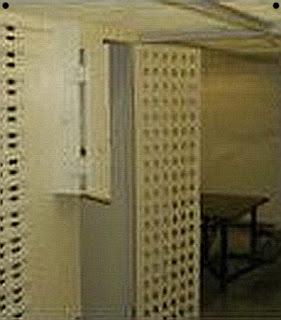.
.
_________________________________________________________________________
Mubarak Vows to Stay On, Cedes Some Power
By: CNBC.com with Wires
_________________________________________________________________________ .
Thursday, 10 Feb 2011
Egyptian President Hosni Mubarak, rebuffing demands that he step down immediately, said Thursday he will stay in office until the September elections but will transfer power to the country's newly-appointed vice president.
In a TV address that failed to meet demands by protesters for him to resign, Mubarak, 82, appeared to hand over the reins of power to his deputy, Omar Suleiman, a former intelligence chief trusted by Washington.
Protesters in central Cairo's Tahrir Square waved their shoes in dismay at the speech, shouting: "Down, Down, Hosni Mubarak," enraged by the fact that the president had not stepped down.
"He doesn't seem to understand the magnitude of what is happening in Egypt," said Alanoud Al Sharek, Senior Fellow, Regional Politics, International Institute For Strategic Studies-Middle East. "At this point I don't think it will suffice."
Marc Ginsberg, former ambassador to Morocco, told CNBC that Mubarak's decision to opt for "creeping power-sharing" with his vice president had surprised most Egypt-watchers, including the White House, who had expected an outright resignation.
"Based on what happened today, it looks like the protestors ... essentially confronted a president who threw more flames on the fire. And they're setting up tomorrow for major demonstrations, perhaps on the presidential palace.
"That sets up a potential confrontation between the military and the protestors, the very confrontation that I had thought earlier in the day that the military wanted to avoid."Egypt's military said last week that it was unwilling to fire on protestors. Egyptian military officials also have given the White House private assurances that troops would not use deadly force against civilians, a U.S. official told NBC News.
Mubarak's decision is likely to exacerbate worries among investors, an economist said.
It "was the worst message the international investor community could have expected to receive," said John Sfakianakis, chief economist at the Riyadh, Saudi Arabia-based Banque Saudi Fransi.
Immediately after Mubarak's speech, Vice President Suleiman called on the protesters to "go home" and asked Egyptians to "unite and look to the future."
The pair of addresses followed a series of dramatic events Thursday evening that had raised expectations Mubarak was about to announce his resignation.In a surprise step, the military announced on state TV that its Supreme Council was in permanent session in scenes that suggested the armed forces were taking control, perhaps to ensure Mubarak goes.
The top general for the Cairo area told protesters in the square that "all their demands" would be satisfied, and the protesters lifted him on their shoulders, believing that meant the end of Mubarak's nearly 30-year authoritarian rule.
Instead, Mubarak went on the air several hours later, delivering a 10-minute address that suggested little has changed.
Click Here to Read More.
__________________________________________________________________________
.
.
__________________________________________________________________________
Reciprocal links:
http://HermannHearsay.blogspot.com/(Hermann Area News, Commentary & Discussion)
































